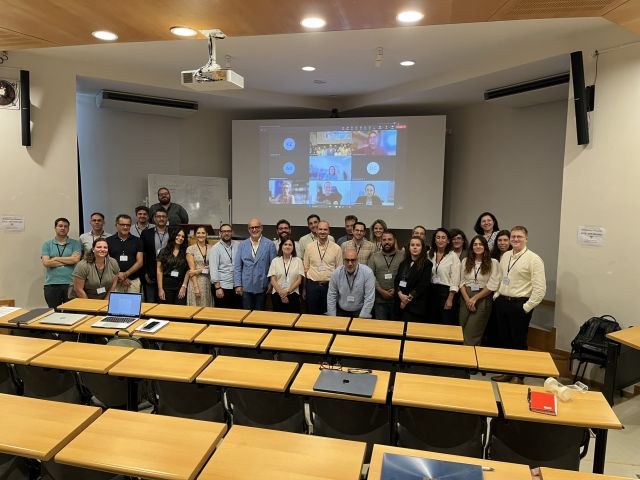Endometriosis is a condition that is often hard to diagnose, with patients typically facing a delay of up to eight years before receiving the correct diagnosis. The SENSOPAD project (Sensing Endometriosis On Portable Auxiliary Devices) seeks to reduce this diagnostic delay to just a few days by developing innovative self-monitoring devices and Point-of-Care (PoC) tools. Launched in September 2024 and coordinated by the National Technical University of Athens, the project involves 12 beneficiaries, including the University of Bologna.
Funded by the European Union with over 6.8 million euros under the Horizon Europe – Cluster 4 programme, which focuses on research and innovation to promote sustainability in European industries, the project aims to create two groundbreaking technological systems: sensoPAD, a wearable device integrated into sanitary pads, and sensoMFgFET, a portable device that uses advanced biosensors to detect biomarkers and genetic variations linked to endometriosis through menstrual flow.
Researchers from the 14 institutes involved will focus on the different stages of research and development of the two devices through international exchanges and by using specialised laboratories at each stage of progress.
The team from the University of Bologna includes Professors Giovanni Valenti, Francesco Paolucci, Donato Calabria and Mara Mirasoli from the Department of Chemistry ‘Giacomo Ciamician’, as well as Professor Andreas Lesch from the Department of Industrial Chemistry ‘Toso Montanari’.
By the end of the project, scheduled for 2028, SENSOPAD aims to bring about a substantial change in the management of endometriosis, enabling early diagnosis and prompt treatments. This will help reduce the worsening of symptoms and improve patients’ quality of life. Additionally, these devices will help reduce healthcare costs and optimise treatment for infertility, a condition often linked to endometriosis.

